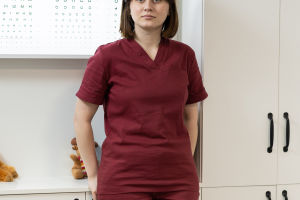Stomach cancer, also known as gastric cancer, remains one of the leading causes of cancer-related deaths globally.
Despite its prevalence, early detection remains a significant challenge due to the often vague and subtle symptoms.
What is Stomach Cancer?
Stomach cancer occurs when malignant cells form in the lining of the stomach. It typically develops over several years, often starting with changes in the stomach lining caused by chronic inflammation, infection, or other conditions.
The majority of cases are adenocarcinomas, which arise from the glandular cells in the stomach lining. While certain risk factors increase the likelihood of developing stomach cancer, many individuals with the disease have no obvious predisposing conditions.
Stomach cancer is usually found only after it has progressed, which helps explain its relatively poor prognosis. Yet if it is caught sooner, approaches such as surgery, chemotherapy, and targeted therapy can markedly raise the chances of successful treatment.
Early Signs of Stomach Cancer: Subtle Symptoms
Persistent Indigestion and Heartburn
While many people experience occasional indigestion, persistent or frequent bouts of indigestion that do not respond to typical antacids should be taken seriously.
Paul Mansfield, M.D., a surgical oncologist, notes "Most stomach cancers don't cause any symptoms until they’re more advanced, and they can mimic indigestion or reflux. So any heartburn, indigestion, or upper-abdominal discomfort that changes and persists for more than two or three weeks should prompt a medical check-up."
Unexplained Weight Loss
Unintentional weight loss is one of the most common symptoms of stomach cancer, especially when it occurs without changes to diet or exercise habits. Weight loss in stomach cancer may be a result of the body’s increased energy demands to fight the disease or due to difficulty absorbing nutrients.
Feeling Full After Eating Small Amounts
Known as early satiety, this symptom occurs when a person feels uncomfortably full after eating only a small portion of food. This could be due to a tumor obstructing the stomach, making it difficult for food to pass through.
Abdominal Pain and Discomfort
A dull or persistent ache in the stomach area is another symptom that could indicate the presence of stomach cancer. While it may initially be mistaken for gas or bloating, ongoing pain should not be ignored, especially if it intensifies over time.
Risk Factors and Causes of Stomach Cancer
Helicobacter pylori Infection: A chronic infection with the bacterium H. pylori is one of the most significant risk factors for stomach cancer. It causes long-term inflammation in the stomach lining and can lead to ulcers and changes that predispose to cancer.
Family History and Genetics: Individuals with a family history of stomach cancer or certain inherited genetic syndromes such as Lynch syndrome have a higher risk.
Age and Gender: Stomach cancer is more common in people over 50 and is more prevalent in men than women.
Diet: Diets high in salty and smoked foods and low in fruits and vegetables are linked to an increased risk of stomach cancer.
Previous Stomach Surgery or Conditions: Individuals who have had stomach surgery or who suffer from conditions like gastric polyps or chronic gastritis may have a higher risk of developing gastric cancer.
Why Early Diagnosis is Crucial
Early diagnosis of stomach cancer significantly improves treatment outcomes. However, as the symptoms are often overlooked or attributed to less severe conditions, many patients are diagnosed only after the cancer has spread to other parts of the body. Early-stage stomach cancer may be treated effectively with surgery, and sometimes chemotherapy, allowing patients to lead long, healthy lives.
Screening and Diagnosis: How Is Stomach Cancer Diagnosed?
Endoscopy: The most common method of diagnosing stomach cancer is through an upper endoscopy, where a small camera is inserted through the mouth to view the stomach lining.
Imaging Tests: CT scans, PET scans, and ultrasound are often used to determine the extent of cancer spread.
Blood Tests: While there is no blood test to definitively diagnose stomach cancer, certain tests may be performed to look for anemia (a sign of internal bleeding) or other abnormalities that might suggest cancer.
Treatment Options for Stomach Cancer
Surgery: If the cancer is detected early and is localized, surgery may be performed to remove the tumor or, in some cases, the entire stomach.
Chemotherapy: Chemotherapy is commonly used either before or after surgery to shrink the tumor or any remaining cancer cells.
Targeted Therapy: Targeted therapy drugs aim to block the growth of cancer cells by targeting specific proteins or genes involved in the cancer's growth.
Stomach cancer is a serious disease with a poor prognosis if diagnosed at an advanced stage. However, early detection can significantly improve survival rates. Being aware of the early signs and symptoms—such as persistent indigestion, unexplained weight loss, and stomach discomfort is crucial for timely intervention. Regular screenings for high-risk individuals and maintaining a healthy lifestyle can help reduce the risk.


